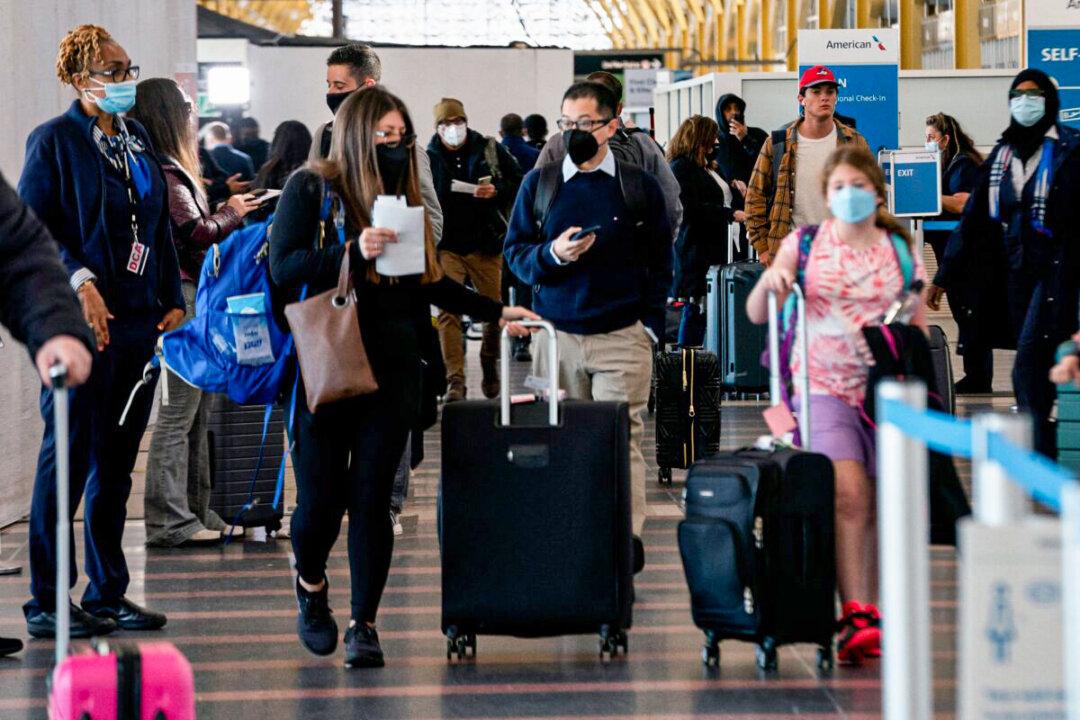President Joe Biden’s administration in a court hearing on Jan. 17 urged judges on a federal appeals court to overturn a ruling from a lower court that struck down the administration’s airplane mask mandate.
The U.S. Centers for Disease Control and Prevention (CDC) had “good cause” to impose the mandate and bypass the notice- and comment period required by the Administrative Procedure Act (APA), Brian Springer, an attorney for the government, told judges of the U.S. Court of Appeals for the 11th Circuit.





